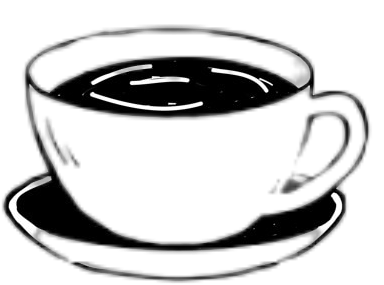
As someone who has delved into the intricacies of various religious practices, I found the topic of why Mormons abstain from coffee particularly intriguing. This curiosity led me to explore the reasons behind this prohibition, aiming to understand its origins and implications.
Understanding the Mormon Faith and Its Dietary Guidelines
The Church of Jesus Christ of Latter-day Saints (LDS), commonly known as the Mormon Church, was founded in the early 19th century by Joseph Smith. Central to the faith is the "Word of Wisdom," a set of dietary and health guidelines revealed to Smith in 1833. These guidelines are detailed in Section 89 of the Doctrine and Covenants, an appendage to the Book of Mormon. The Word of Wisdom advises against the consumption of alcohol, tobacco, and "hot drinks," a term that has been interpreted by church leaders to refer specifically to coffee and tea.
The Interpretation of "Hot Drinks" in the Word of Wisdom
The term "hot drinks" in the Word of Wisdom has been a subject of interpretation. Early church leaders, including Brigham Young, clarified that this term refers to coffee and tea. This interpretation has been upheld by subsequent church authorities, emphasizing the avoidance of these beverages. Interestingly, the prohibition extends beyond temperature; even iced coffee and tea are discouraged, highlighting that the restriction is more about the substances themselves rather than their serving temperature.
Health Considerations and the Word of Wisdom
The Word of Wisdom is often viewed as a code for physical health and spiritual well-being. While modern research presents mixed findings on the health effects of coffee, the LDS Church's stance is rooted in adherence to divine counsel rather than contemporary scientific studies. The emphasis is on obedience to the guidance provided in the Word of Wisdom, which is considered a commandment for church members.
The Role of Obedience in the LDS Faith
Obedience to the Word of Wisdom is seen as a demonstration of faith and commitment within the LDS community. Abstaining from coffee and tea is a tangible expression of adherence to the church's teachings. This practice fosters a sense of unity among members and serves as a daily reminder of their spiritual commitments.
Personal Reflections on the Practice
In my exploration of this topic, I found that the abstention from coffee and tea among Mormons is not merely a dietary choice but a profound expression of faith. It reflects a commitment to the teachings of their religion and a desire to live in accordance with divine guidance. This practice underscores the importance of obedience and discipline in the LDS faith, contributing to the overall spiritual well-being of its members.
Understanding the reasons behind this prohibition offers valuable insights into the values and principles that guide the lives of those who follow the teachings of the Church of Jesus Christ of Latter-day Saints.
Product Review Conclusion
In conclusion, the LDS Church's prohibition on coffee and tea is deeply rooted in the Word of Wisdom, a foundational health code revealed to Joseph Smith. This practice emphasizes obedience, health, and spiritual well-being, reflecting the core values of the Mormon faith. By abstaining from these beverages, members demonstrate their commitment to the teachings of their religion and their dedication to living a disciplined and faithful life.
Frequently Asked Questions
Q: Why are Mormons prohibited from drinking coffee and tea?
A: Mormons abstain from coffee and tea based on the Word of Wisdom, a health code revealed to Joseph Smith in 1833, which advises against the consumption of "hot drinks," interpreted by church leaders as coffee and tea.
Q: Does the prohibition include all forms of coffee and tea?
A: Yes, the prohibition encompasses all forms of coffee and tea, regardless of temperature, including iced coffee and tea.
Q: Are there exceptions to this rule within the LDS Church?
A: The LDS Church maintains a consistent stance on this issue, and members are expected to adhere to the guidelines without exceptions.
Q: How does this prohibition affect daily life for Mormons?
A: Mormons often substitute coffee and tea with other beverages such as herbal teas, hot chocolate, or grain-based coffee alternatives, aligning with their dietary guidelines.
Q: Is the prohibition on coffee and tea unique to the LDS Church?
A: While the LDS Church's specific prohibition on coffee and tea is unique, other religious groups have dietary restrictions that include certain beverages.
